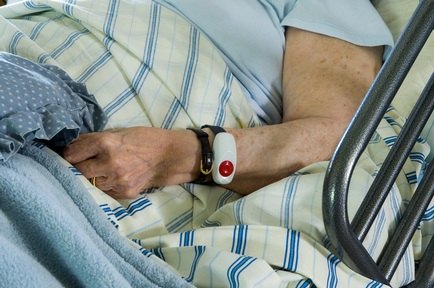UK end-of-life care ranked 'best in the world'
End-of-life care in the UK has been ranked number one by a study investigating the quality and availability of services worldwide, although charities warn that much more needs to be done.

Released by the Economist Intelligence Unit (EIU), the study of 80 countries said that thanks to the NHS and hospice movement the care provided in the UK was "second to none".
Rich nations tended to perform the best - with Australia and New Zealand ranked second and third respectively, and Ireland and Belgium gaining fourth and fifth positions. Bottom of the ranking came Iraq and Bangladesh, while China was in the worst ten.
The rankings were worked out following assessments for the quality of the hospitals and hospice environments, staffing numbers and skills, affordability of care and quality of care.
Just 34 out of 80 countries provided what could be classed as good end-of-life care - and these accounted for just 15 per cent of the adult population.
The UK received top marks for affordability - as would be expected for a service that is provided free at the point of need - but also got a perfect score for quality of care.
Overall it was given 93.9 out of 100, but the report still said there was room for improvement - as there was with all the top-performing nations.
Annie Pannelay, principal of EIU healthcare, said: “The UK is an acknowledged leader in palliative care. That reflects its comprehensive strategy towards the issue, as well the improvements that are being made, for example in ensuring that people get to spend their final days in the place of their choice.
“But there is more that the UK could do to stay at the forefront of palliative care standards, such as ironing out occasional problems with communication or symptom control.”
An investigation by the Parliamentary and Health Service Ombudsman into complaints about end-of-life care, published in May 2015, highlighted issues such as poor symptom control, poor communication and planning, not responding to the needs of the dying, inadequate out-of-hours services and delays in diagnosis and referrals for treatment.
Claire Henry, chief executive of the National Council for Palliative Care, commented: “At its best how the UK cares for people who are dying is absolutely world class with hospice care leading the way, but there can be no room for complacency, especially as the demand for palliative care is increasing.
“Despite excellent care which we should rightly be proud of, too many people in the UK are still being failed as they reach the end of their lives, with a series of hard hitting reports highlighting that dying people cannot consistently rely on access to pain relief, 24/7 care or coordinated care that would enable them to be cared for and die in the place of their choice, which for most people is in their own homes or in a hospice.
“We only have one chance to get care right for people who are dying, which is why we very much hope that the Government continues to look to improve end of life care for everyone who needs it and invests in caring for dying people in the forthcoming spending review, including by implementing the recommendations contained in the recent review of choice at the end of life.”
Simon Jones, director of policy and public affairs at Marie Curie, added: “We know from our own research that each year around 110,000 people are missing out on care that they urgently need. If there is a ‘business as usual’ approach following this report, then we will only see more cases of vulnerable people failing to get the care they need.
“This report must be viewed in context. One in five people who die in the UK are not getting the care they need. This quite simply is not good enough. With more people dying each year, the demand for compassionate palliative care will only increase. Our collective ambition must be to ensure better access to palliative care for everyone who needs it.”
The UK also came top the last time this report was produced in 2010.
Latest News
 29-Jul-24
Dementia Bus gives carehome.co.uk staff insight into life with dementia
29-Jul-24
Dementia Bus gives carehome.co.uk staff insight into life with dementia
 01-Mar-24
Find out the top care homes in 2024
01-Mar-24
Find out the top care homes in 2024
 21-Mar-23
UK's top care homes in 2023 revealed
21-Mar-23
UK's top care homes in 2023 revealed
 03-Jan-23
carehome.co.uk launches free care helpline
03-Jan-23
carehome.co.uk launches free care helpline
 13-Dec-22
5 mins with Emily Whitehurst, chief operating officer for Constantia Healthcare
13-Dec-22
5 mins with Emily Whitehurst, chief operating officer for Constantia Healthcare